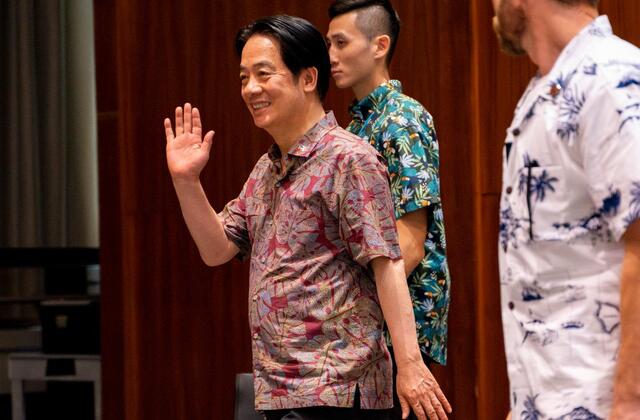China has criticised the United States over the stopover in Hawaii made by Taiwanese President Lai Ching-te. This visit marks his first overseas trip since taking office. Beijing expressed disapproval, accusing the US of facilitating Taiwan’s diplomatic engagement, which it sees as undermining its claims over the island.
China’s formal protest
The Chinese government condemned the US for arranging Lai’s “stopover” in Hawaii and lodged a formal protest. A spokesperson from China’s foreign ministry called the action unacceptable, signalling ongoing tensions over Taiwan’s international status.
Warm welcome in Hawaii
During his two-day visit, Lai received a warm reception in Hawaii. He was greeted with Hawaiian leis, flowers, and friendly “aloha” greetings as he arrived. Lai visited several locations, including a Pacific island history museum, an emergency management centre, and the USS Arizona Memorial in Pearl Harbour.
Significance of the visit
This visit marked the first time a Taiwanese president had received such a welcome in Hawaii. Lai was met by Hawaii Governor Josh Green, Ingrid Larson from the American Institute in Taiwan (AIT), and other local officials at Honolulu’s international airport.
Strengthening US-Taiwan relations
Lai took the opportunity to express gratitude to the United States for its continued support. In his speech, he emphasised the strong ties between Washington and Taipei. At a dinner in his honour, US officials and members of the Taiwanese community joined the gathering. AIT chairperson Laura Rosenberger highlighted the importance of ongoing collaboration.
US-Taiwan relations amid tensions with China
While the United States does not formally recognise Taiwan as a sovereign state, it remains Taiwan’s key ally and largest supplier of arms. Beijing strongly opposes any official relations between Washington and Taipei, viewing Taiwan as part of its territory.
These developments reflect the ongoing diplomatic tension between the US and China, particularly regarding Taiwan’s international standing.
